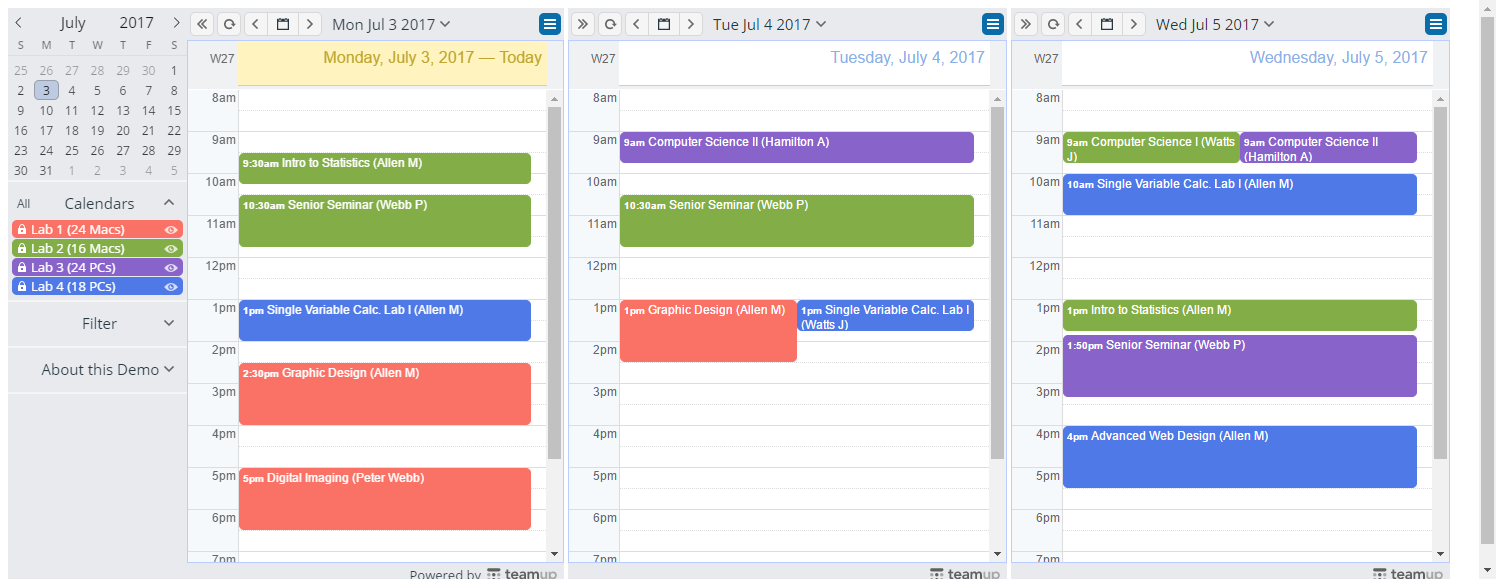Advanced tip: Use link parameters to display events for consecutive periods, such as today, tomorrow, the day after tomorrow.
Show consecutive days or months
If you want to show consecutive periods on a large calendar display, you can use the date and header parameters on side-by-side screens.
This is a great solution when you want to show events over a certain time period without losing details; for example, displaying appointments for a service shop or the multi-day schedule for a conference.
The screen below shows 3 large TV screens that display calendar views of the same calendar for the current month, the next month, and the month after the next. In this case, the parameters used are ?date=+1month, etc.

Embed into a web page
Here’s an example which shows three consecutive days of a lab reservation calendar with multiple link parameters applied:
It is the result of embedding the same calendar three times, with different parameters applied, into a simple web page. You can do this by appending link parameters manually, or use the embed wizard to generate the iFrame code or embedding url.
In the example above, here are the parameters used:
- Today: < iframe src=”https://teamup.com/ksxxxxxxxxxxxxxxxx?showHeader=0&showViewSelector=0&view=d” width=”38%” height=”100%” frameborder=”0″>
- Tomorrow: < iframe src=”https://teamup.com/ksxxxxxxxxxxxxxxxx?date=+1day&view=d&sidepanel=c&showHeader=0&showViewSelector=0″ width=”30%” height=”100%” frameborder=”0″>
- The day after tomorrow: < iframe src=”https://teamup.com/ksxxxxxxxxxxxxxxxx?date=+2day&view=d&sidepanel=c&showHeader=0&showViewSelector=0″ width=”30%” height=”100%” frameborder=”0″>
To use the same iFrame code:
- Remove the space between the first “<“ and “iframe.”
- Replace the example calendar link (“https://teamup.com/ksxxxxxxxxxxxxxxxx”) with your own secure calendar link.

